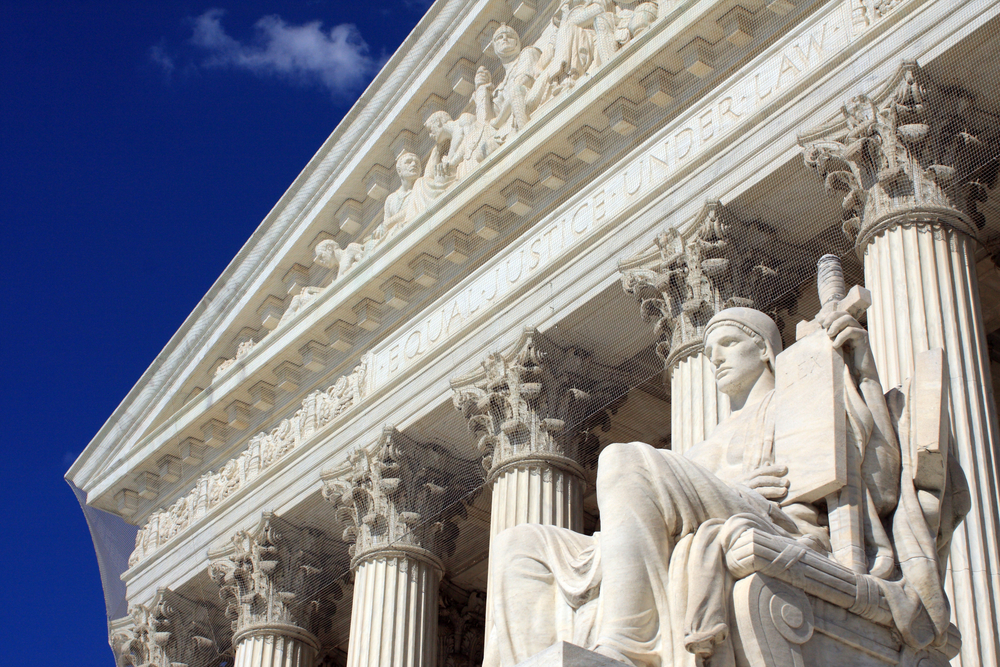Who We Are
The Center for Constitutional Responsibility is dedicated to preserving the separation of powers and the accountability of the political branches at all levels of government in the United States. In particular, the Center is concerned with the increasingly common delegation to unaccountable private parties of the executive’s exclusive power to enforce public law to politically unaccountable private parties. This delegation – which deputizes the plaintiffs’ bar and private citizens to act as roving, unaccountable “private attorneys general” – is a threat to democratic accountability and the cohesiveness of our union. Laws, especially on contentious topics, should be enforced by government officials that answer to the Constitution and the people. The Center aims to prevent the unwise and unconstitutional delegation of sovereign enforcement authority.

In the Courts
ACHESON HOTELS, LLC V. LAUFER - TESTER PLAINTIFFS
In Acheson Hotels LLC v. Laufer the Supreme Court was asked to resolve a circuit split over whether ADA tester plaintiffs have Article III standing to sue hotels for ADA violations even if they never intend to visit those hotels. The Center for Constitutional Responsibility filed amicus briefs supporting Acheson Hotels at both the certiorari and merits stage—arguing that allowing ADA tester plaintiffs to have Article III standing would violate Article II and compound the growing problems that arise when private parties wield executive power. Although the Supreme Court dismissed the case as moot on standing grounds, Justice Thomas signaled that he shares our constitutional concerns and picked up on several arguments CCR made in its briefs to the Court.
ACHESON HOTELS, LLC V. LAUFER - TESTER PLAINTIFFS
December 8, 2022
On December 8, 2022, the Center for Constitutional Responsibility filed a brief with the U.S. Supreme Court urging the Court to hear a case that considers whether the power to enforce public rights is vested exclusively in the Executive Branch. In Acheson Hotels, LLC v. Laufer, the Court is asked to consider whether so-called Americans with Disabilities Act tester plaintiffs, like Laufer, have standing to sue allegedly noncompliant businesses simply to enforce the law, not redress personal injuries.
In the News

State-Level Private Enforcement Is Much More Complicated Than Previously Thought
New research on state laws that delegate enforcement to citizens. “Our findings show that state private enforcement is large, significant,…

State and Federal “Private Right of Action” Legislation: Are These Mechanisms Wise or Worrisome?
Executive Director Karen Harned joins this discussion and presents the legal problems with laws that create private rights of action…

Exiting the ‘Constitutional Twilight Zone’
Karen Harned
Executive Director Karen Harned discusses Supreme Court decision that shows concern by at least one justice with public welfare laws…
Leadership

Karen R. Harned
Executive Director
Ms. Harned has over 33 years of legal, regulatory, legislative, and communications experience defending the freedoms afforded to all Americans by the...
Board of Directors

Adam White
President
Adam White is a senior fellow at the American Enterprise Institute, where he focuses on American constitutionalism, the Supreme Court, and the...

Peter J. Wallison
Treasurer
Peter J. Wallison is a senior fellow emeritus at the American Enterprise Institute (AEI), where he studies constitutional law and the growth of...

James R. Copland
Secretary
James R. Copland is a senior fellow at the Manhattan Institute and director of Legal Policy. In those roles, he develops and communicates novel...


